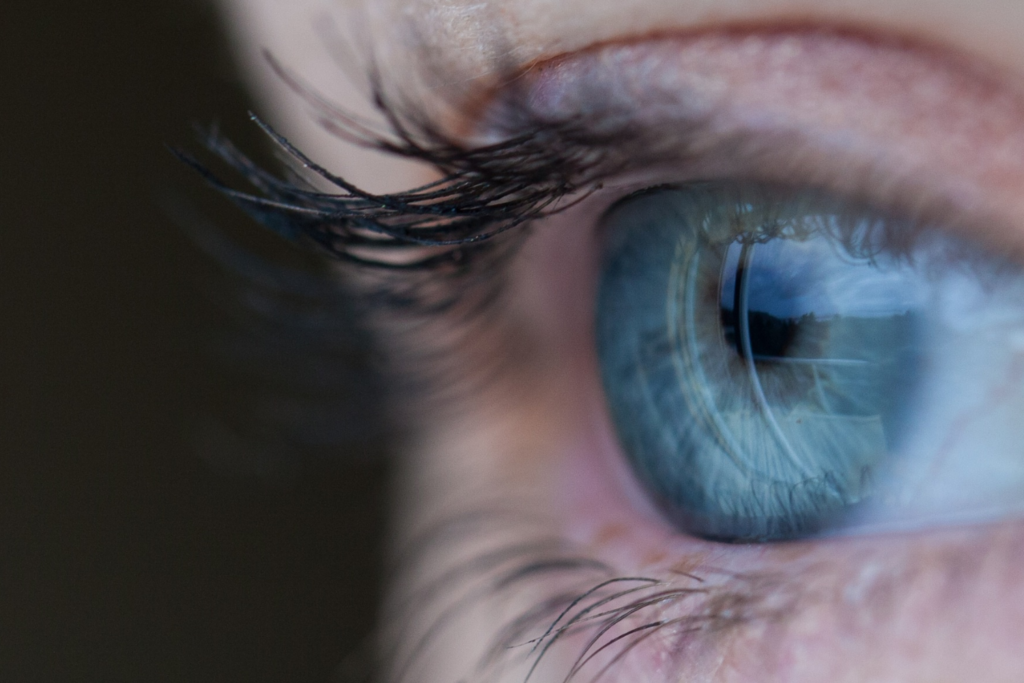You’re always looking for ways to improve your health. Whether it’s hitting the gym more or cutting down on fast food, you want to be your best for as long as possible. But have you ever considered the health of your eyes? Keeping your vision healthy is a year-round job. Fortunately, you can take care of your eyes regardless of the year by following a few basic steps.
To keep your vision healthy during 2021:
- Schedule a baseline eye exam
- Wear high-quality sunglasses
- Wear eye protection when appropriate
- Don’t smoke
- Know your family’s vision history
Just because you don’t have 2021 vision doesn’t mean you can’t keep your eyes as healthy as possible. Follow our tips to keep supporting your vision all year and for years to come.
Schedule a Baseline Eye Exam
According to the American Academy of Ophthalmology, adults without any risk factors or signs for eye diseases should still get a baseline eye exam when they turn 40. This is because around the age of 40 is when most people begin to show the early signs of eye diseases. Also known as comprehensive exams, these exams are essential for maintaining long-term eye and vision health.
Comprehensive eye exams usually include dilating the eyes. This helps your eye doctor see deeper into the eye more clearly and spot any problems that may be on the horizon. They will then give you instructions based on your results. Adults over 40 should get a comprehensive eye exam every two years, and those over 50 should get one every year.
Having certain health and vision problems may require you to schedule one sooner rather than later. For instance, diabetics should get a comprehensive eye exam every year starting as soon as they’re diagnosed. Those with a family history of macular degeneration, glaucoma, or other eye diseases should get a yearly comprehensive exam starting at 30.
Wear High-Quality Sunglasses
UV radiation from the sun is a year-round threat. While it’s strongest in the summer, UV radiation can still cause problems for your vision at higher elevations or bouncing off of reflective surfaces such as snow. So don’t get yourself some cheap sunglasses. Invest in a high-quality pair that will last for years and protect your vision.
Don’t just choose the darkest pair you can find, since this is no indicator of how well it will protect your eyes from the sun’s rays. When shopping for sunglasses, the most important thing to consider is UV blocking. Choose a pair that blocks 99 – 100% of UVA and UVB light. You can also look for a pair labeled “400nm.” This is equal to 100% UV blocking.
From there, you can narrow down your search based on features. Polarized lenses cut down on reflected glare which can make it easier to see. You can also invest in lenses made from materials such as plastic, shatterproof, or polycarbonate. While no lens is shatterproof, it can be a major benefit for those who lead more active lifestyles.
Wear Eye Protection When Appropriate
You probably don’t think about eye safety when performing household chores, but you should. While they seem harmless, tasks such as mowing the lawn, raking or blowing leaves, and home repairs leave your eyes open to debris that could damage your vision. Just because you’ve performed the same task thousands of times doesn’t mean accidents don’t happen.
Some of the most common home-related eye accidents involve:
- Push and ride-on mowers
- Power trimmers and weed eaters
- Gardening chemicals
- Paint and cleaners
- Gasoline and oil
Mowers and other power tools present some of the biggest threats to your eyes and vision. This is because they can send sticks, rocks, and other debris flying towards you at extremely high speeds. Not only do these objects hurt, but they can also cause long-term damage to your eyes. A scratch on your cornea can leave a scar that will affect your vision for the rest of your life.
Along with eye protection, make sure to pick up any debris when doing yard work such as rocks and sticks or limbs. Always make sure to read and follow the instructions before using power tools, chemicals, or anything else that could possibly harm your eyes.
Don’t Smoke
We all know that smoking is bad for you and can lead to serious health problems further down the road. However, not as many are aware that smoking also contributes to the development of eye diseases and vision loss. This is just one more reason why you should never begin smoking. If you are a smoker then you should quit immediately.
Smoke from cigarettes contains around 4,000 toxic compounds. Some such as tar, carbon monoxide, and formaldehyde may sound familiar. Others such as nitrosamines and polycyclic aromatic hydrocarbons (PAHs) may be less familiar but are just as dangerous.
According to experts, smoking can increase your risk of vision loss by as much as four times. It does this by doing significant damage to the blood vessels in your eye, your retina, as well as decreases the amount of oxygen that usually makes it to your macula. It also increases your chances of developing dry eye syndrome.
Know Your Family’s Vision History
Some vision problems can be the result of genetics. While having a family history of an eye diseased doesn’t guarantee that you’ll get it, it does increase your chances. That’s why people with a family history of eye diseases should start getting comprehensive eye exams once they turn 30.
Let’s use cataracts as an example. Cataracts are when the lens of your eye becomes hard and inflexible due to the deterioration of proteins in the lens. It can take years for the effects of cataracts to become noticeable. However, knowing you have a family history of cataracts can encourage you to get tested and receive treatment sooner rather than later.
Baptist Eye Surgeons is an ophthalmological practice in Knoxville, TN, and Morristown, TN. Visit our website to meet our doctors and learn more about our specialties, or give us a call at 865-579-3920 for more information or to schedule an appointment.






